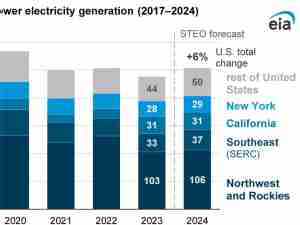Oil fell on signs the worsening U.S.-China trade war will take a toll on global economic growth, overshadowing the prospect of OPEC and its allies extending production curbs.
Futures in New York declined as much as 1.2%. Federal Reserve Bank of Boston President Eric Rosengren said the trade standoff is adding a downside risk to his economic forecasts and the Organization for Economic Cooperation and Development downgraded its projection for global growth. The American Petroleum Institute was said to report U.S. crude stockpiles rose by 2.4 million barrels last week, putting more downward pressure on prices.
"The market has once again turned its attention to the trade war and its potential negative impact on growth and demand,’’ said Ole Hansen, head of commodities strategy at Saxo Bank A/S. The Boston Fed and OECD’s comments on growth and the potential for another increase in U.S. inventories ``helped turn the focus around,’’ he said.
Oil has struggled to find clear direction in recent weeks as investors assess conflicting demand and supply signals. The Organization of Petroleum Exporting Countries and its allies have suggested they may persist with output cuts at a time rising tensions in the Middle East and unplanned outages from Libya to Venezuela are tightening the supply picture. Meanwhile, the deterioration in U.S.-China relations suggests the trade war may persist, weakening the outlook for demand.
West Texas Intermediate crude for July delivery fell 71 cents, or 1.1%, to $62.42 a barrel on the New York Mercantile Exchange at 10:19 a.m. in London. June futures expired on Tuesday after dropping 0.2%.
Brent for July settlement declined 69 cents, or 1%, to $71.49 a barrel on the London-based ICE Futures Europe exchange after closing up 21 cents on Tuesday. The global crude benchmark traded at a $9.10 premium to WTI.
Chipmakers, Retailers
The Paris-based OECD cut its 2019 global economic growth forecast to 3.2% from 3.3% after lowering it from 3.5% in March. U.S. chipmakers warned that everyone will suffer from the escalating trade war, while American retailers are sounding the alarm over rising costs from the dispute.
“While forecasts by the OECD and others suggest demand growth will slow, OPEC is expected to control supply,” said Miyoko Nakashima, a senior strategist at Mizuho Securities Co. in Tokyo. “That means there is a limited upside, but prices may stay in a relatively stable range.”
If U.S. government data on Wednesday confirms the API report on crude inventories, it will be the fourth gain in five weeks. The industry body’s figure contrasts with the 1.7 million-barrel decline estimated by analysts surveyed by Bloomberg.









